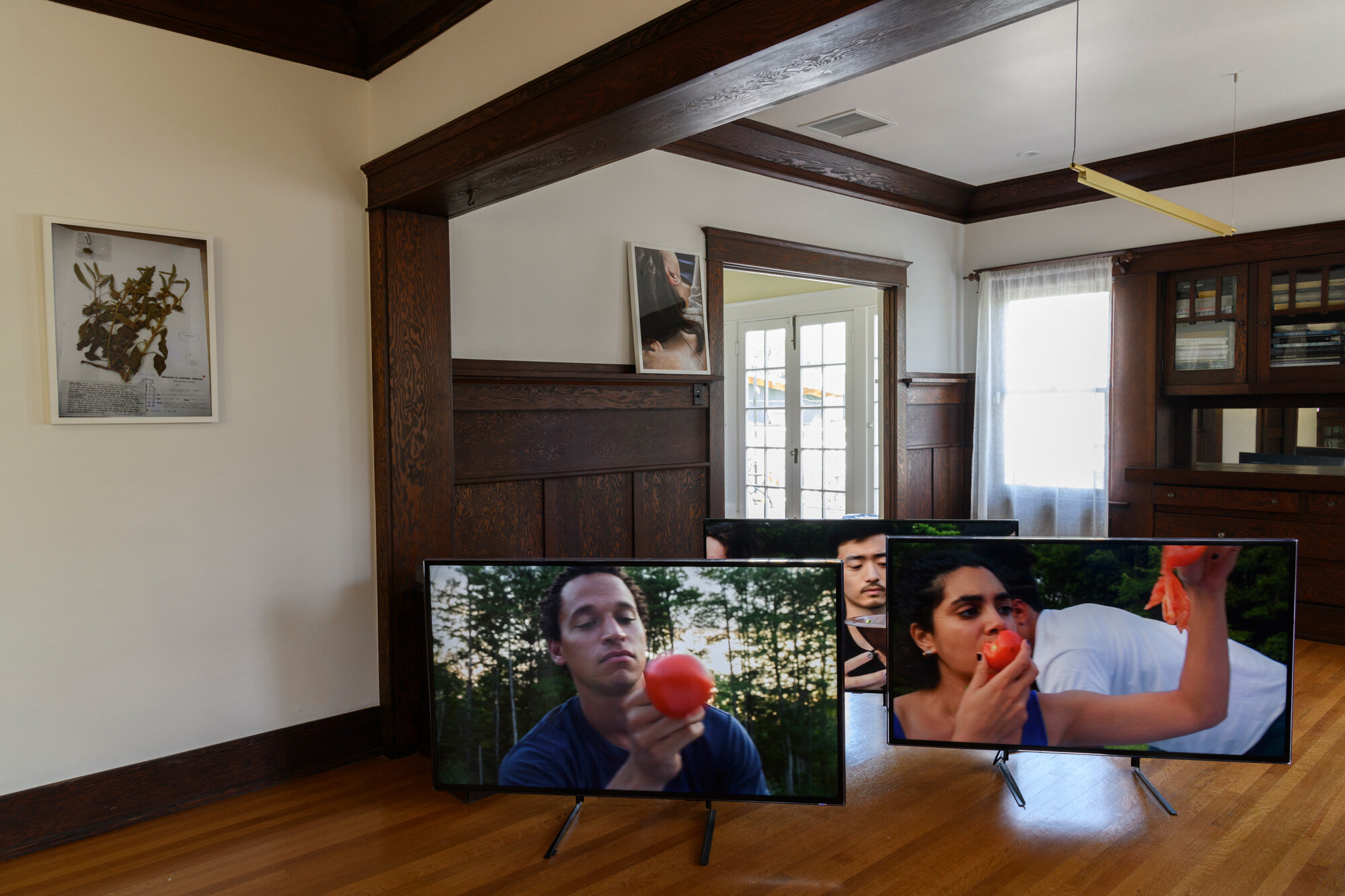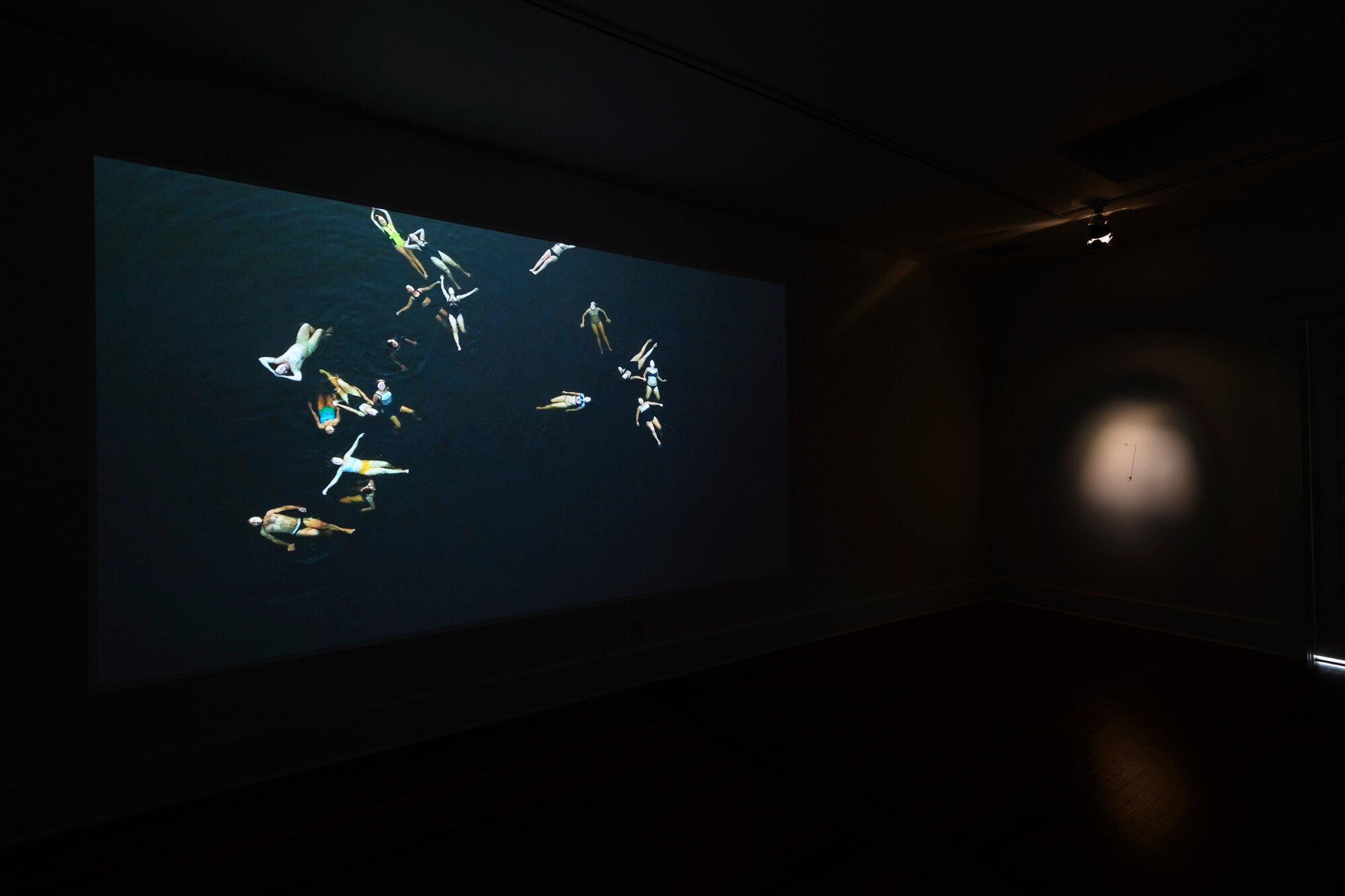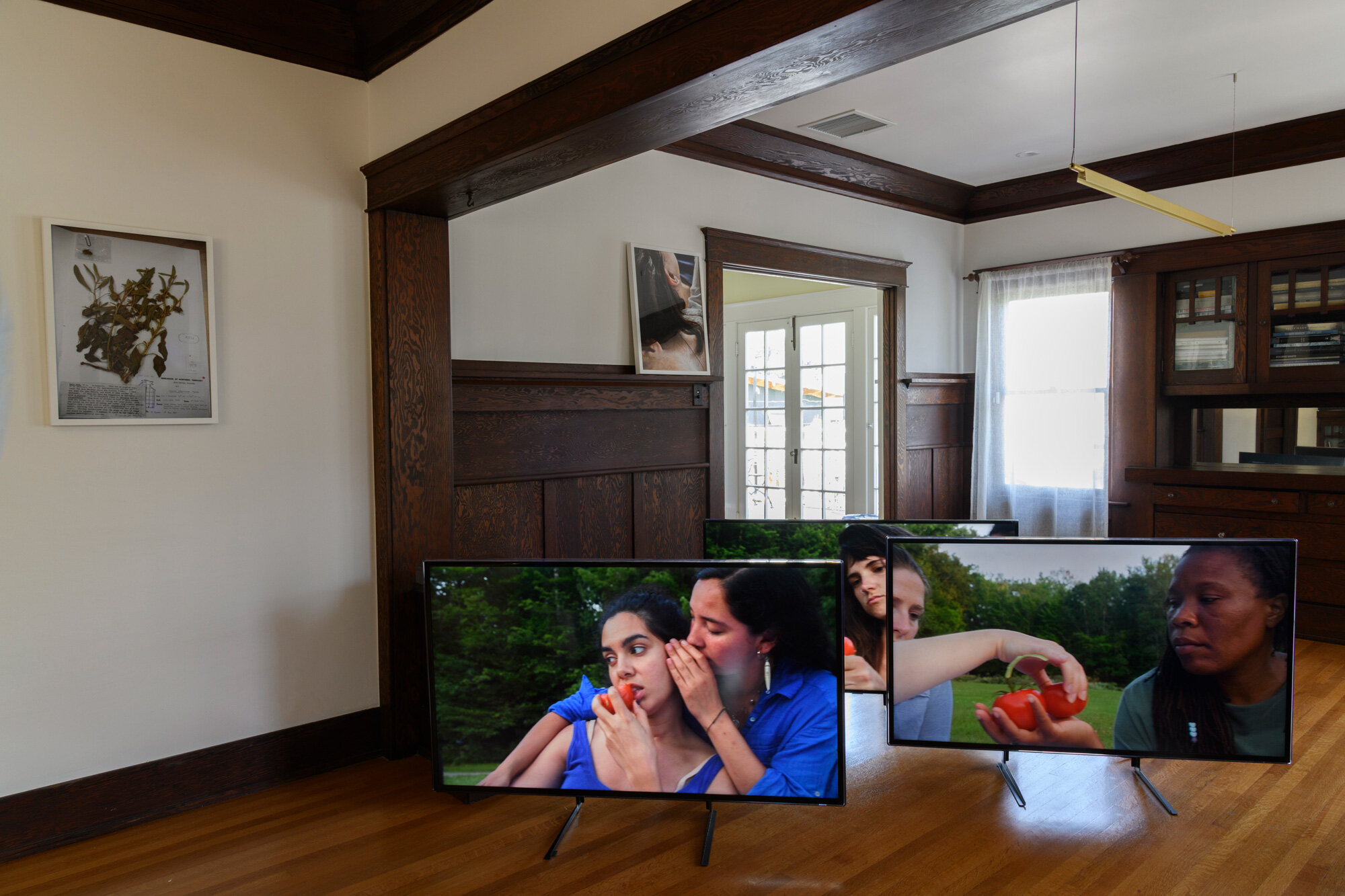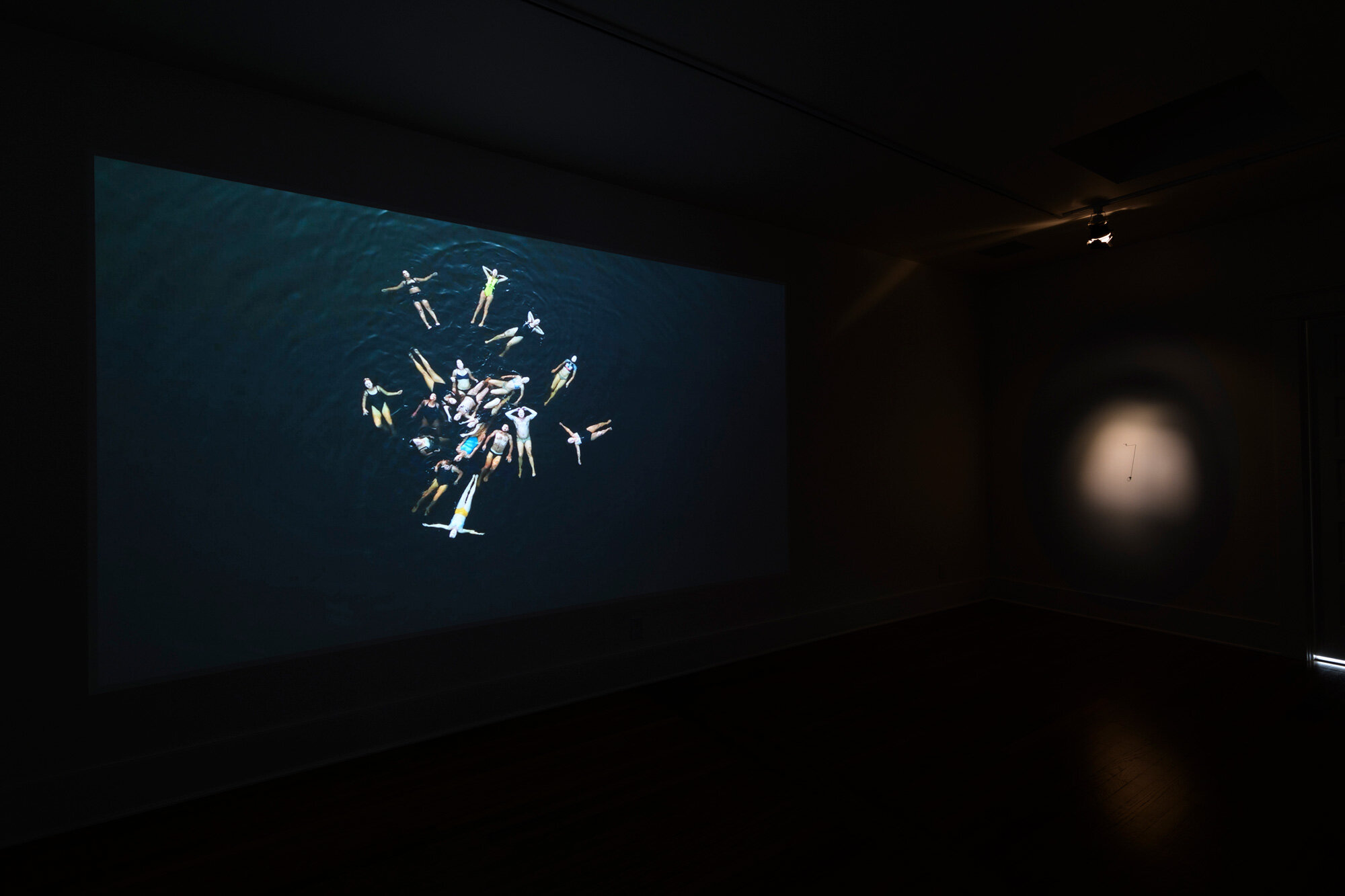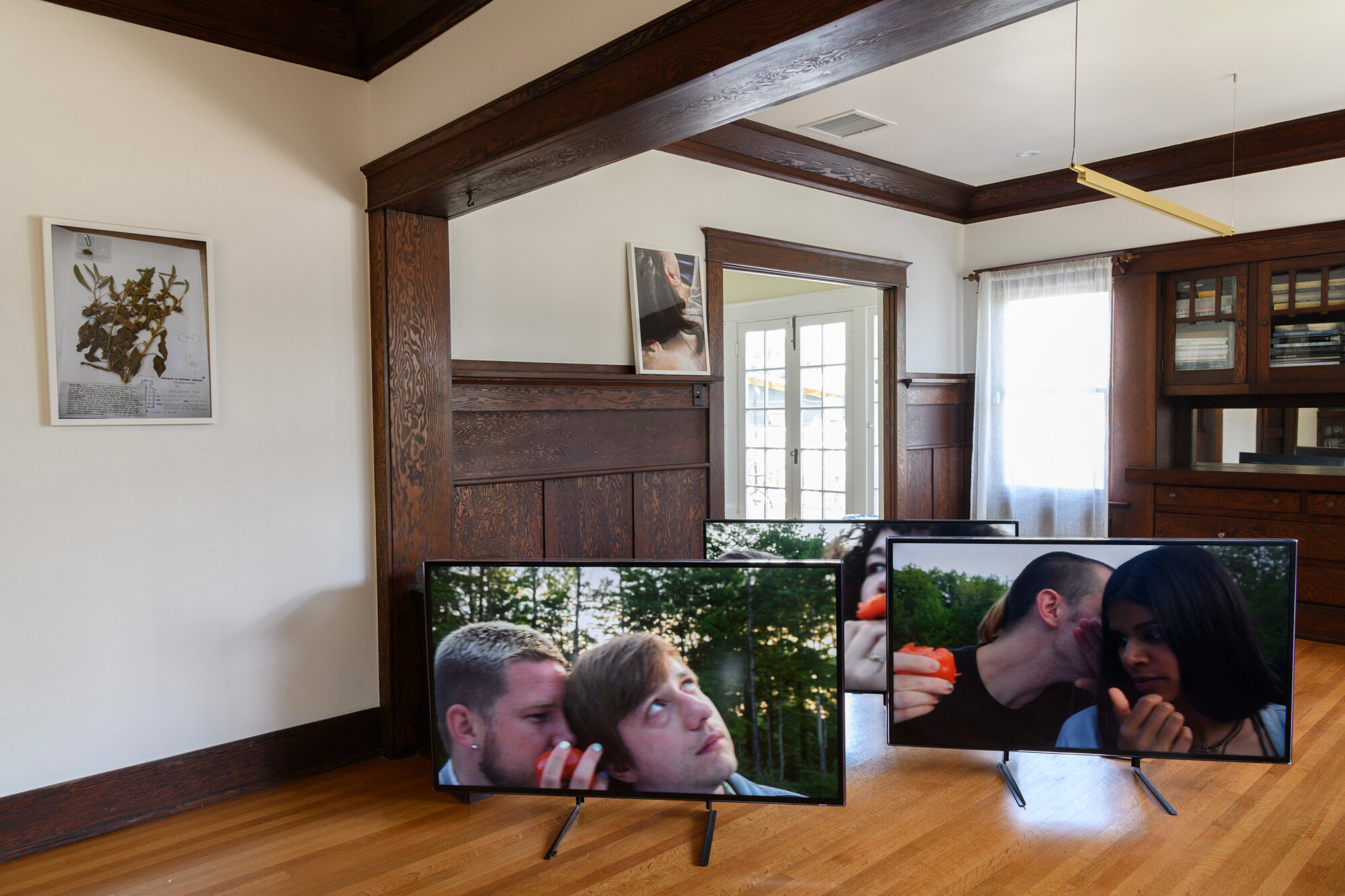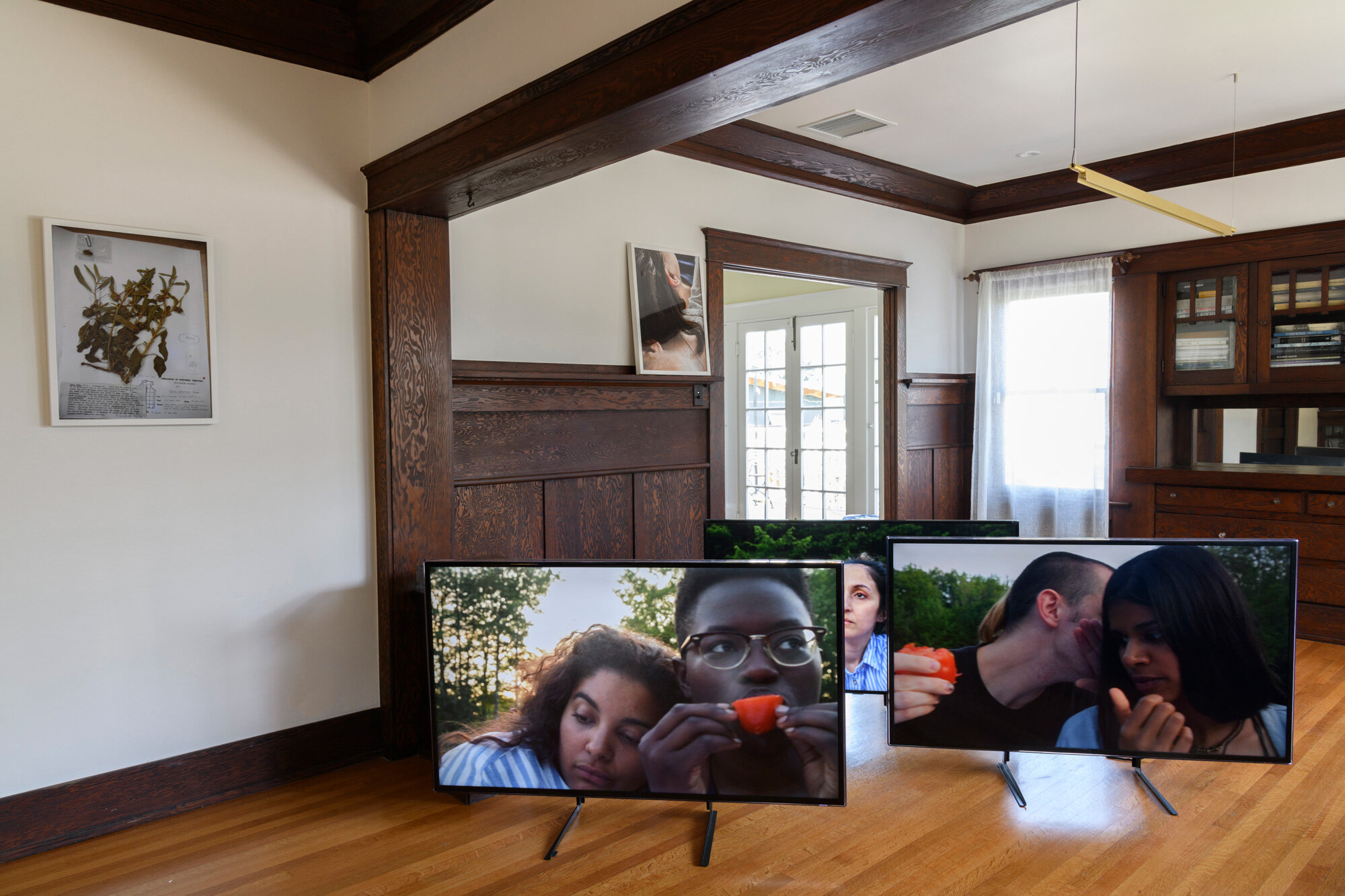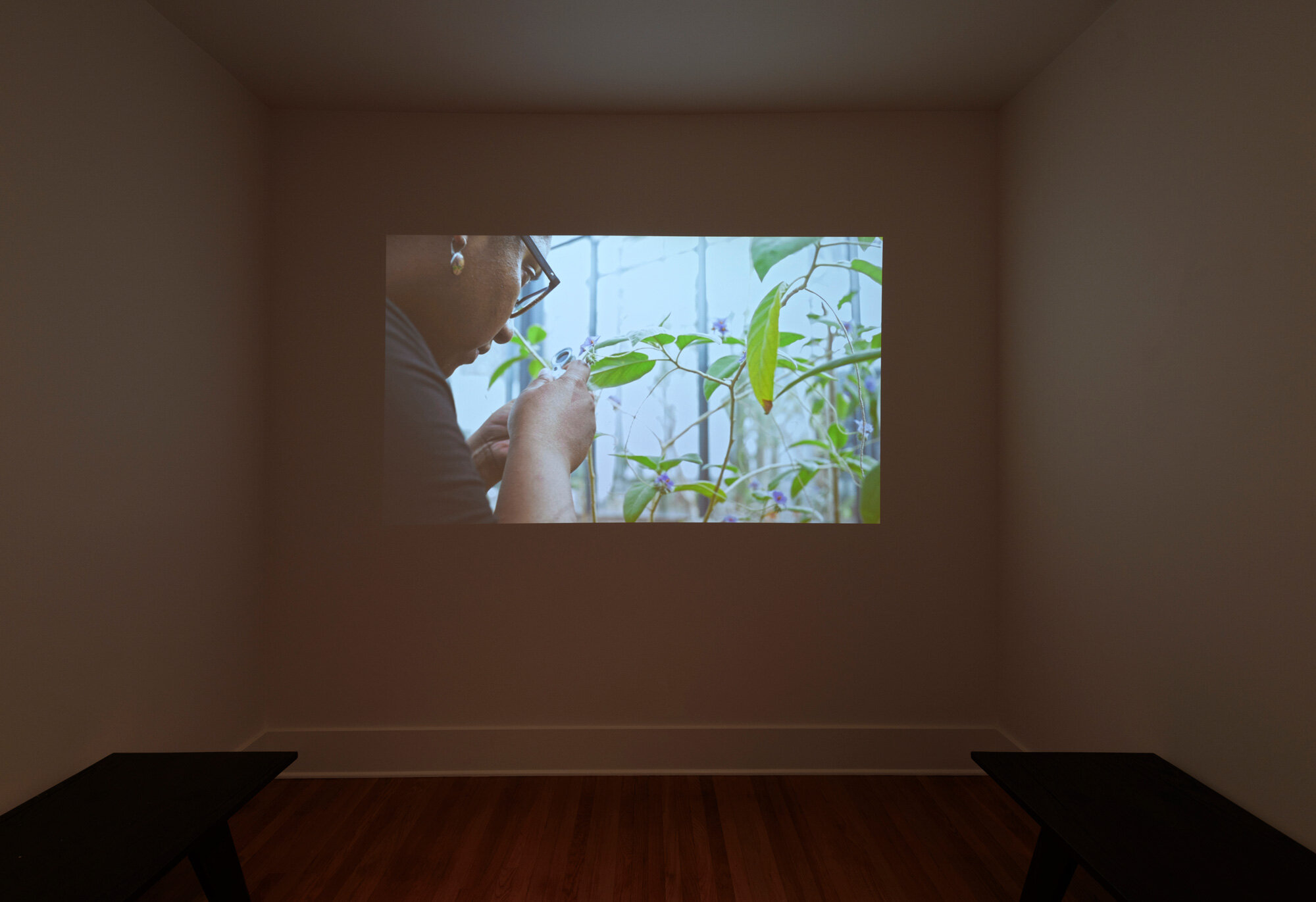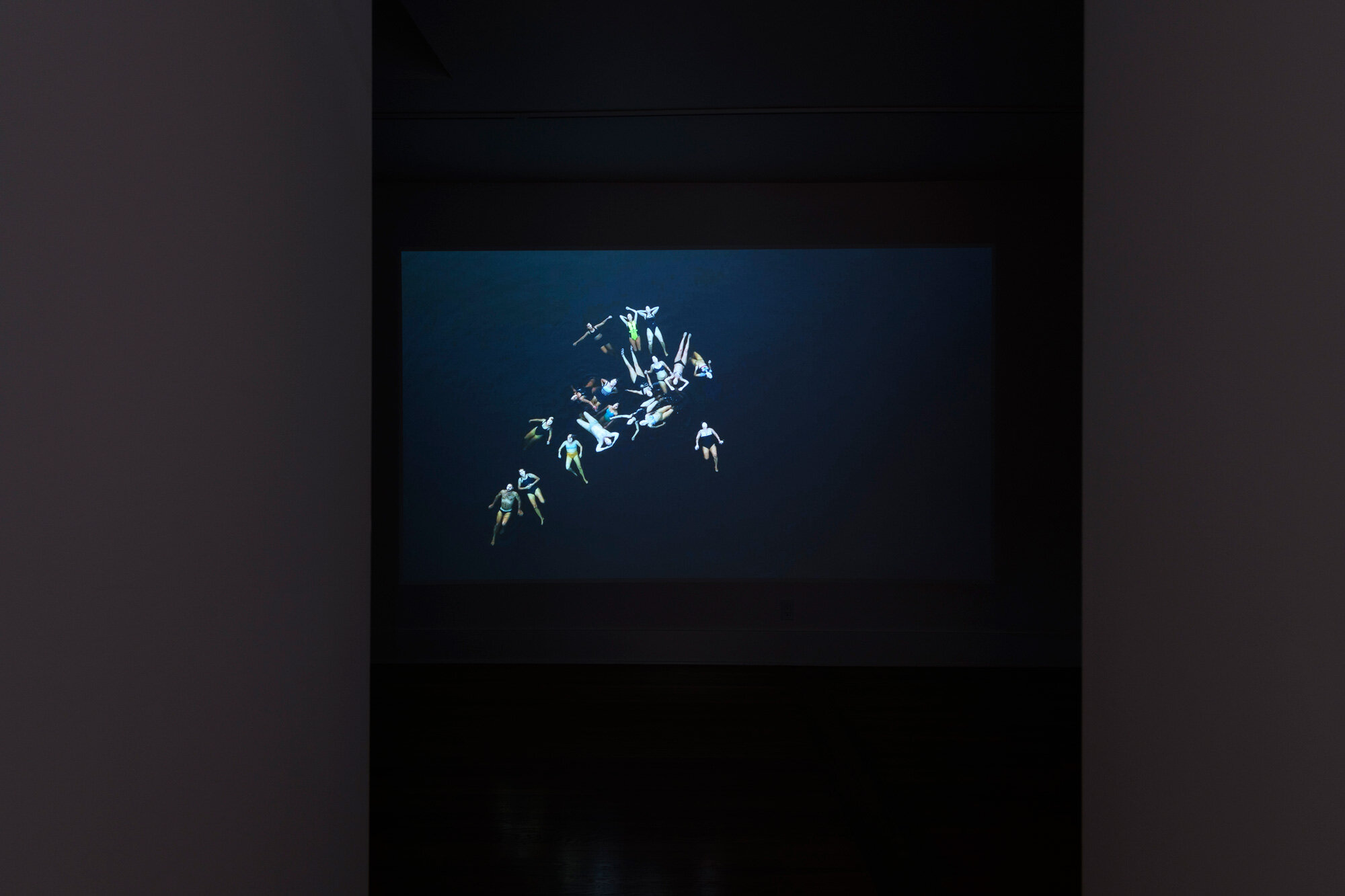Erin Johnson
My First Name is Hers
March 7 – April 5, 2020
Erin Johnson
Nightshade
March 7 – April 5, 2020
Erin Johnson's exhibition Nightshade presents videos, sculptures, and photographs that explore the artist’s ongoing interest in the complexity of collectivity, the wide-ranging consequences of scientific research, as well as resistance, desire, and the queer body.
The single-channel video I might not be here when you come takes as its starting point Solanum plastisexum - an Australian bush tomato whose sexual expression appears to be unpredictable and unstable, challenging even the fluid norms of the plant kingdom. Because it doesn’t fit within a constant sexual binary, it evaded classification by botanists for decades. The video - filmed as over 50 million acres of land burned in wildfires across Australia - combines footage of the team of botanists who recently named Solanum plastisexum in their lab in Pennsylvania, with shots of Australian plants cultivated in the United States at The Huntington in Los Angeles. The voice-over is an amalgamation of texts including interviews with botanist Tanisha Williams and love letters between Rachel Carson and Dorothy Freeman. Carson was forty-six and Freeman fifty-five when the two met in 1953 on an island in Maine. Though Freeman was married, they sustained a passionate, romantic correspondence throughout Carson’s writing of seminal environmental texts.
In a series of photographs and the videos Lake (Skowhegan, ME) and Tomatoes (Skowhegan, ME), a group of friends, peers, and lovers engage in collective queer and desirous exchanges, such as eating tomatoes in a field and floating together in a lake. The works reflect on feminist theorist Silvia Federici’s call to “reconnect what capitalism has divided: our relation with nature, with others, and our bodies.”
Throughout the show, temporalities converge, moving between I hear, I see - a ring based on a 13th century Jewish relic thought to give wearers the ability to commune with the dead in dreams - and videos that ask for, and propose, a reinvention of the relationship between scientific and political practices and what it means to be human.



